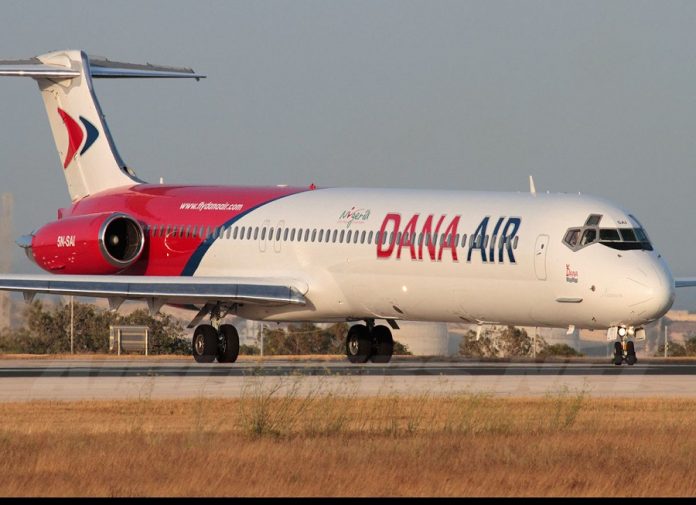
Miss Uzoamaka Stella Ike is a person with a physical disability. With her unique type of disability, she is unable to walk or use her hands, hence, she uses a wheelchair and she is always in the company of personal care attendant (brother). Nevertheless, she works twice as hard as anyone and leads a fulfilling and purposeful life, leading a formidable movement of persons advocating for the rights of persons with disabilities and that requires her to be on the move quite a lot, including attending some refresher training or fellowship programmes.

She set out to attend a one-week GBV training and fellowship organized by the Inclusive Friends Association, IFA, on the 8th day of March 2021 when she was subjected to utter discriminatory treatment by Dana Air at its Enugu terminal. She was charged an extra Four Thousand Five
Hundred Naira (N4,500.00) for her wheelchair which is her only source of mobility. Despite her protestations and the emotional trauma and anxiety it caused her, she had to pay the sum else she would have been denied the lawful right to board the aircraft to Abuja to enable her to attend her training, having purchased return air tickets for herself and her caregiver.

Again, Dana Air repeated this abhorrent treatment at their Abuja terminal, where Miss Ike who was due to return home after the training was charged the same amount for what a staff of the airline now christened “Special Assistance Fee/Charge” which he claimed were to offset the bill of the airline’s partners who assisted persons in wheelchairs or other Persons with Disabilities (PWDs) that require help to board and/or disembark its aircraft. Even in the face of the express provision of Section 14 of the disability Act which mandates airlines to provide such assistance. Never mind that Miss Ike had a caregiver who for the most part assisted her in this regard.

Despite the national outcry from Nigerians, especially the community of PWDs, against its discriminatory policies, Dana Air continues to play the proverbial unrepentant Devil that takes delight in inflicting maximum torture on his/its unwilling victims. Or so it seems. The airline has not relented in perpetuating practices that dehumanize or degrade passengers with disabilities, including reducing them to mere chargeable excess luggage, and which are a monumental affront to the overriding intent or purpose of the Discrimination Against Persons with Disabilities (Prohibition) Act, 2018, a fortiori, the Constitution of the Federal Republic of Nigeria, 1999 (as amended) (“the Constitution”).
As if denying PWDs from flying at night is not enough grinch on their fundamental human rights, Dana Air has gone one step further to charge them more for being disabled, even at this time of the Covid-19 pandemic, when most PWDs are facing even more excruciating financial imbalance over and above most of their counterparts without disabilities.
Sadly enough, it must be said that despite the prohibition of all forms of discrimination under Section 42 of the Constitution, discrimination against persons with disabilities in Nigeria has become a national crisis. And the recent enactment of a national disability Act is yet to successfully prevent the mass exclusion and/or infringement or sordid mitigation of the basic human rights of persons with disabilities, such as safe and comfortable movement and/or accessible and affordable transportation, whether by land, water, or air, among others. Therefore, it is only in this province that one must properly appraise Dana Air’s “Wheelchair Charge” or the so-called “Special Assistance Charge”. Otherwise, one would be undermining the very essence of the national disability Act. But those who undermine the humanity which the Act underscores must know that they do so at their peril.
It is discriminatory, dehumanising, degrading, unconstitutional, and immoral for Dana Air (or any other airline) to demand and indeed collect “Wheelchair Charge” from PWDs and Uzoamaka Stella Ike, in particular. As PWDs shouldn’t bear the cost for accessibility. Wheelchairs or other assistive devices are an inherent part of PWDs, without which their rights to accessibility and freedom of movement cannot be guaranteed.







































